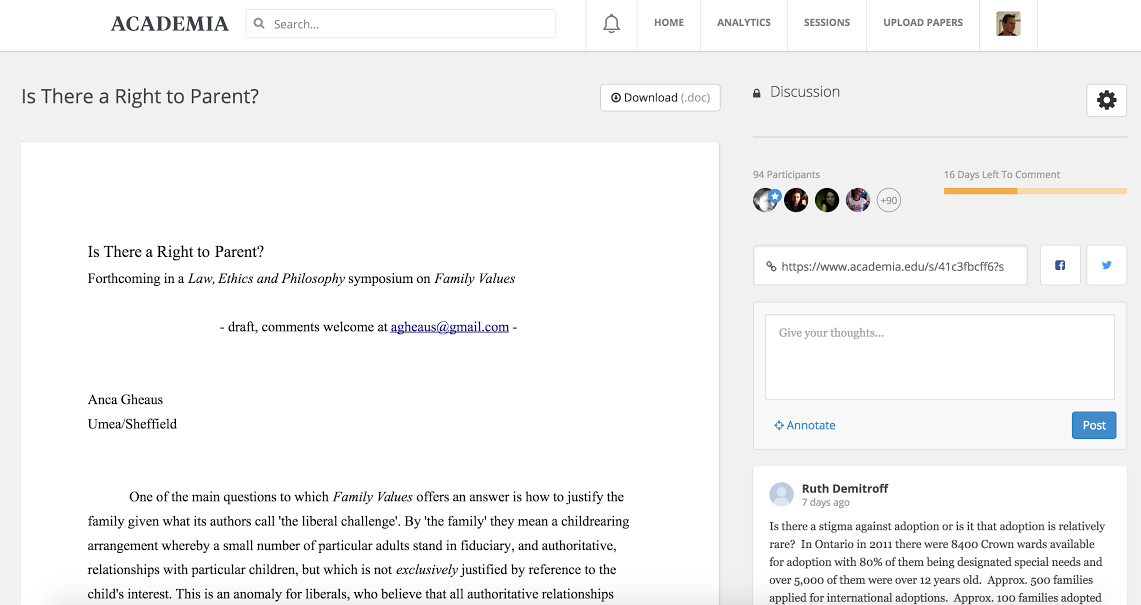For several years, Richard Price has had a quixotic dream to make cutting-edge academic research universally available to everyone.
“I want a world where a 19-year-old kid in China can access a paper he’s interested in about lithium ion batteries on his phone on the subway and it’s validated by others and it’s in his own language,” Price said.
 It’s been a very long process, since — by design — universities are some of the most tradition-bound and slow-moving institutions around.
It’s been a very long process, since — by design — universities are some of the most tradition-bound and slow-moving institutions around.
Research has historically been gated by very expensive subscription publications controlled by a handful of giants like Reed Elsevier. But gradually, Price has amassed 25 million users on his platform, Academia, which disseminates and validates research papers.
Now he’s trying to take it to the next level with a feature called Sessions, which is a form of peer review that exists entirely online on Academia.
“If you speak to academics, they will complain about the publishing system,” he said. “It can take 12 months to get the peer review done. Our grand vision for the publishing experience is that an academic should be able to get work published in 24 hours that is already peer reviewed by two people.”
Academia has been trialling ‘Sessions’ with a select number of members but now it’s fully rolled out, with as many as 6,000 sessions going on simultaneously every day.
Sessions allows select groups of academics to privately discuss a working paper for 20 days. It tries to mimic the dynamics of a conference where a researcher discusses their work with a select peer group in a question-and-answer session.

Academia’s new “Sessions” feature lets researchers discuss working papers under a 20-day time constraint. It’s Price’s vision for what modern peer review should look like.
Price said that there were a couple of features that were absolutely necessary to make this work.
One is that it’s private, so that comments are not searchable on Google and academics have the ability to respond to critics personally before they revise their work.
The other is that it’s not just a comment box at the bottom of PDF. Sessions’ comments are on the right-hand bar of the page and they are annotations that refer to specific sentences of paragraphs (kind of like Medium’s commenting format).
“We knew that we needed a more sophisticated approach,” Price said. “A lot of people have tried putting a comment box at the end of papers. But that has been proven not to work.”
There is also a time limit of 20 days so that there’s pressure for other academics to respond quickly.
“You want urgency,” he said.”We want an experience that is like having everyone in the same room. There’s a time constraint.”
Lastly, Academia is its own distribution network, and it can pull in other relevant researchers to comment on a person’s paper. Instead of cold-calling or e-mailing dozens of people, an academic can reach out to other researchers who have high author or paper rankings. Conceptually, Academia’s Paper Rank is comparable to Google’s Page Rank with citations and linking built in as a form of validation.
The company, which has 26 employees, has raised around $18 million from investors, including Khosla, Spark Capital and True Ventures.